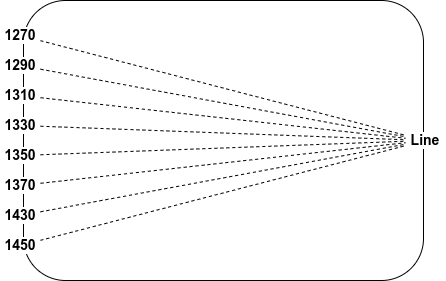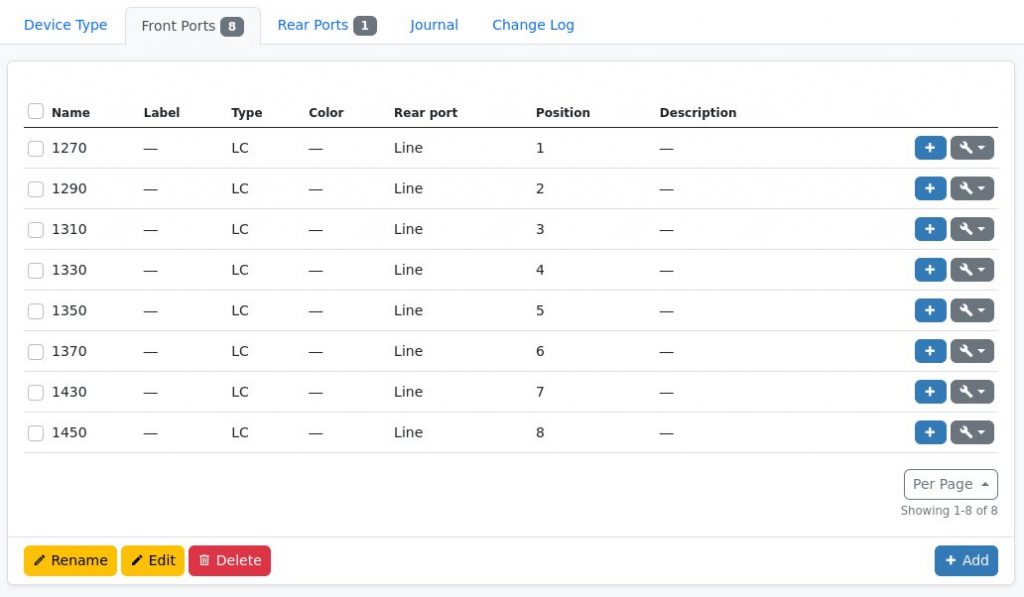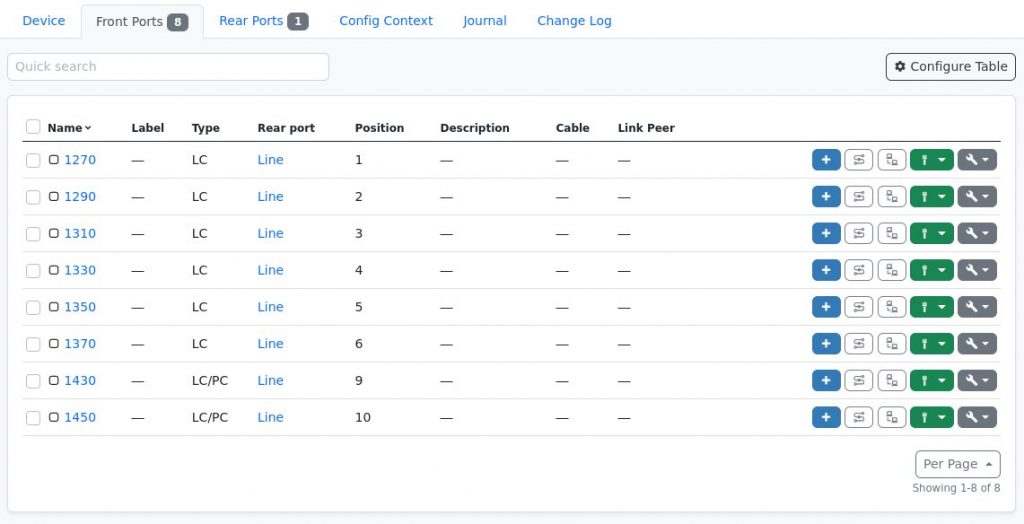A while ago we had a discussion in #DENOG on how to best model CWDM MUXes in NetBox/Nautobot, so they can be used to build a network topology, which can be leveraged for holistic automation, and are prepared for augments, repairs and network changes.

“Natural” way of modelling
The “natural” way of modelling for example an 8Ch CWDM MUX – as shown above – would be to create a DeviceType containing one RearPort with 8 positions as well as 8 FrontPorts which map to one position each. So logically this would look like the following

Inside NetBox the Rear Port and Front Ports view of the DeviceType could look like this


This model absolutely works, allows tracing connections through the MUXes etc. as long as we always use exactly the same MUX on both ends of the fiber for a given WDM setup.
Limitations
If one MUX would decay over time and needs to be replaced by another model, e.g. due to supply chain issues, this might get tricky. If the new MUX for example had 10 channels and does not skip 1390 and 1410, the mapping would fail. This obviously would also be the case if, e.g. for an expansion, the setup should be changed to 18Ch MUXes and this could only be done one side after another.
Universal way of modelling
As the ITU CWDM standard only defines 18 CWDM channels in total with a fixed spacing of 20nm we can use one simple trick to overcome this limitation: Always define all 18 positions and only map the existing Front Ports to their associated position as shown in the following table.
| Position | Channel |
| 1 | 1270 |
| 2 | 1290 |
| 3 | 1310 |
| 4 | 1330 |
| 5 | 1350 |
| 6 | 1370 |
| 7 | 1390 |
| 8 | 1410 |
| 9 | 1430 |
| 10 | 1450 |
| 11 | 1470 |
| 12 | 1490 |
| 13 | 1510 |
| 14 | 1530 |
| 15 | 1550 |
| 16 | 1570 |
| 17 | 1590 |
| 18 | 1610 |
So the Front Ports of the MUX shown above would be mapped to positions 1-6, 9, and 10. This way all CWDM MUXes can be connected in NetBox/Nautobot and all channels which exist on both ends can be connected and traced through.

What about DWDM?
For DWDM systems this obviously would be somewhat harder given the bigger amount of possible channels, especially when different spacing options (25, 50, 100GHz) are taken into account. It would be possible though to go for 160 positions and map the channels accordingly, given strict adherence to a to be predefined map.